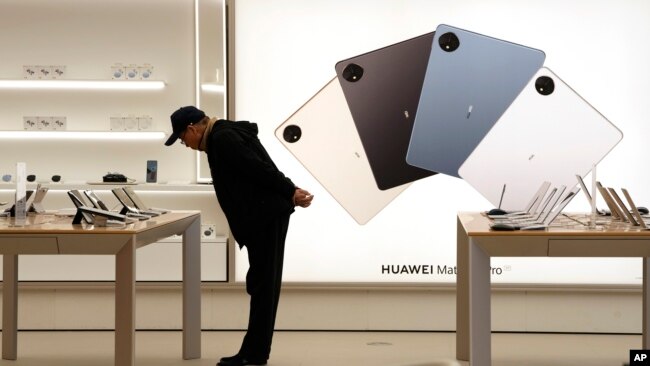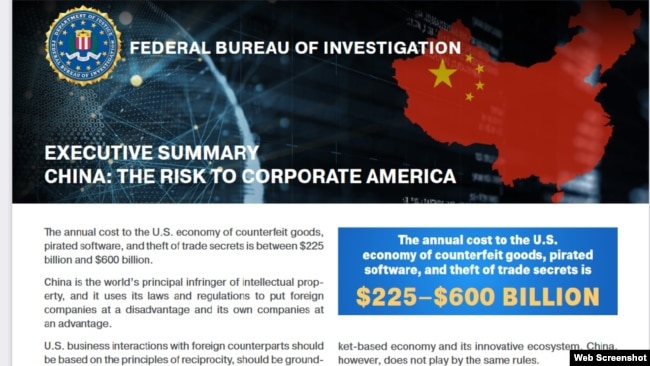Leaders of democratic nations respond to brazen extradition attempt
Photos of eight activists who have been issued arrest warrants over national security are displayed during a press conference in Hong Kong on July 3, 2023. (Joyce Zhou/Reuters)
July 3, 2023 Updated:
July 5, 2023
Hong Kong police are offering $1 million (US$127,650)
bounties for information on eight human rights dissidents currently residing in
the United States, UK, and Australia.
On July 3, the National Security Department of the Hong Kong
Police Force issued arrest warrants for the eight individuals, alleging they
had contravened the National Security Law.
The law was passed by Beijing’s rubber-stamp legislature in
2020 and received widespread
criticism for eroding the long-running “one country, two systems”
model that ensured British-style rule of law over Hong Kong.
The eight individuals were accused of “endangering” Hong
Kong’s national security—more specifically, the allegations of “incitement to
secession, subversion, incitement to subversion, and collusion with a foreign
country.”
Chief Superintendent of Police (National Security) Li Kwai-wah speaks during a press conference to issue arrest warrants for eight activists in Hong Kong on July 3, 2023. (Joyce Zhou/Reuters)
A Hong Kong police spokesperson claimed the National
Security Law granted authorities the power to pursue individuals located
outside of the city.
Meanwhile, Steve Li (Li Kwai-wah), chief superintendent of
the HK Police, vowed authorities would “not stop chasing” the dissidents.
“They have encouraged sanctions … to destroy Hong Kong and
to intimidate officials,” he told reporters in comments obtained by Reuters.
While Hong Kong’s chief executive, John Lee, vowed to pursue
the eight activists indefinitely.
“The only way to end their destiny of being an abscondee who
will be pursued for life is to surrender,” he told reporters. “We’ll be
pursuing the abscondees’ criminal responsibilities for life until they
surrender themselves.”
Those subject to the bounties include Australian citizen and
lawyer Kevin Yam, former HK politicians Ted Hui and UK-based Nathan Law (Law
Kwun-chung), as well as other prominent activists Elmer Yuen (Yuan
Gong-yi), Dennis Kwok (Kwok Wing-hang), Mung Siu-tat, Lau Cho-dik, and Anna Kwok
(Kwok Fung-yee).
Dissidents Respond
In response, Nathan Law said he was also “wanted” for other
alleged contraventions of the National Security Law but accused authorities—now
under the sway of the Chinese Communist Party—of bending the rule of law to
suit their own purposes.
“These charges are classic examples of abusing the concept
of ‘national security,’ pushing its definition to an extreme to suppress
dissident voices,” he wrote on
Twitter.
“In civilized countries, the right to peaceful political
advocacy should be protected. That’s what all the ‘wanted’ individuals do. I
urge National Security Bureau to disclose any evidence of my alleged collusion
with foreign forces,” he continued.
“I have not accepted any foreign govt funding, nor am I
employed by any govt agencies. I don’t accept any commands or orders. If
meeting foreign politicians, attending seminars, and hearings are ‘colluding
with foreign forces,’ a lot of HK officials should be in legal trouble.”
1. For the past years, the National Security Bureau has been
accusing me of violating the National Security Law. Today, the specifics of the
were revealed: Incitement to secession, collusion with foreign forces to
endanger national security.
One million HKD bounty is warranted. pic.twitter.com/KV7FIogULP
— Nathan Law 羅冠聰 (@nathanlawkc) July
3, 2023
Australian-based former HK politician, Ted Hui, said the
latest bounty would have no impact on his situation or personal safety, given
he was also subject to multiple warrants under the National Security Law.
“I think the bounty is ridiculous and hilarious,” he told
The Epoch Times via email. “Free countries will not extradite us because of
that. It only shows how powerless the CCP is in response to the HK diaspora who
advocate for freedom and democracy.”
Ted Hui, the former Hong Kong councillor who is now in exile in Adelaide, flew to Sydney to attend the rally. (Huang Jiachuan/ The Epoch Times)
He said the latest move showed the CCP’s persecution of HK’s
overseas diaspora was reaching new heights.
“It makes it clearer to Western democracies that China is
going towards more extreme authoritarianism and will pose more of a threat to
the world.”
A ‘Dangerous Precedent’: US State Department
Leaders in the respective Western nations were quick to
condemn the actions of HK authorities.
“The extraterritorial application of the Beijing-imposed
National Security Law is a dangerous precedent that threatens the human rights
and fundamental freedoms of people all over the world,” said U.S. State
Department spokesperson Matthew Miller in a
statement.
“We call on the Hong Kong government to immediately withdraw
this bounty, respect other countries’ sovereignty, and stop the international
assertion of the National Security Law imposed by Beijing,” he added.
“We will continue to oppose the [People’s Republic of
China’s] transnational repression efforts, which undermine human rights.”
UK Calls Move Authoritarian, While Australia Says Hong
Kong Needs Freedom
The UK’s Foreign Secretary James Cleverly called Beijing’s
latest move “authoritarian.”
“The decision to issue arrest warrants for eight activists,
some of whom are in the UK, is a further example of the authoritarian reach of
China’s extraterritorial law,” he wrote on Twitter.
Australia’s Foreign Minister, Penny Wong, said on
Tuesday that Australia was deeply concerned about Hong Kong’s National Security
Law and about their broad application.
“What I would say in relation to the events overnight, and I
want to be very clear, Australia has a view about freedom of expression,” she
said. “We have a view about people’s right to express their political views
peacefully, and people in Australia who do so will be supported.”
Wong also took to social media to call on Beijing to uphold
the rights and freedoms in Hong Kong.
“We urge the Chinese government to uphold the rights and
freedoms guaranteed by the Basic Law and Sino-British Joint Declaration,” she
wrote on
Twitter.
Prime Minister Anthony Albanese called the bounties
“unacceptable.”
“We are concerned about the announcements overnight that
have been made,” he told Nine’s Today program on July 5.
“We will continue to cooperate with China where we can, but
we will disagree where we must. And we do disagree over human rights issues.”
Meanwhile, the Inter-Parliamentary Alliance on China (IPAC)
said it was a “dangerous escalation in Beijing’s war on global dissent.”
“These comments will exacerbate community tensions and are
likely to precipitate unacceptable infringements of sovereignty,” the
parliamentary group wrote on Twitter.
IPAC further urged Western governments to pledge strong
substantive actions against any potential overreach by Beijing to apprehend
dissidents living in their countries.
In this respect, Beijing does have form, with multiple
accounts from overseas communities saying they face harassment and even
kidnappings from overseas CCP-linked operatives to bring them back to China.












